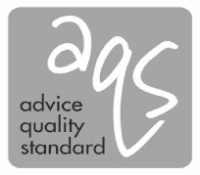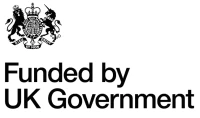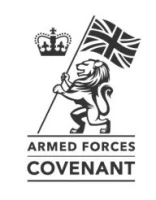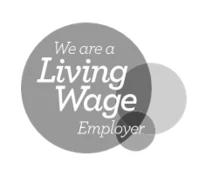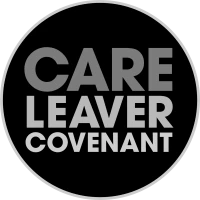We have in place a safeguarding lead and a deputy safeguarding lead. The lead is the person responsible for reporting concerns of abuse and neglect to the relevant authority. In their absence the deputy safeguarding lead will take this action.
In addition, a member of our Trustee Board is assigned the responsibility of overseeing safeguarding for our organization including reporting serious concerns to the Charity Commission and making decisions on safeguarding concerns about our staff and volunteers or children and adults at risk in their care.
How should the policy be used?
This policy must be followed by all staff and volunteers, including senior managers and trustees. It also applies to anyone working on behalf of Citizens Advice Portsmouth.
This policy focuses on safeguarding concerns that stem from interactions with clients and other people who access our service; however the legal duties and principles outlined in this document apply to people who are children that aren’t our clients. For example the child of a client, anyone who is under the age of 18 who is volunteering, beneficiaries or other connections who meet our definition of children in relation to this safeguarding policy.
No one should ignore allegations or suspicions of abuse or neglect.
Why do we have a policy?
We have a policy to:
- protect children and young people who access our This includes children in contact with adults who use our services
- detail what we will do to keep children safe and how we will deal with any concerns we have regarding a child's safety
- provide staff and volunteers with the overarching principles that guide our approach to children’s safeguarding and child protection
It’s important we have a policy because in the course of our day-to-day work, staff and volunteers may come into contact with children. In some instances this will be incidental contact, for example when an adult client brings their child along to an appointment.
There may also be situations when staff and volunteers provide advice or services to clients who are children.
We aim to keep children safe and prevent them from harm. We are committed to:
- having sound recruitment practices
- ensuring all staff and volunteers have an understanding and awareness of children’s safeguarding
- ensuring all staff and volunteers know how to raise safeguarding concerns and feel confident doing so
Our legal and membership duties
It is a requirement of Citizens Advice membership that we act within the relevant laws and regulations to safeguard people who come into contact with our service from harm and abuse.
Protecting people and safeguarding responsibilities are a governance priority for our organisation. It is a fundamental part of how we operate as a charity for the public benefit. Safeguarding is the responsibility of everyone at our organisation.
The Children Act 2004 places a statutory duty on agencies to co-operate to safeguard and promote the welfare of children.
It is unusual that we come into contact with children in the day to day delivery of our service, but when we do or if we choose to provide a service that is targeted at children, we follow the NSPCC Safeguarding and Child Protection Standards.
Government guidance ‘Working together to safeguard children states that ‘Everyone who works with children - including teachers, GPs, nurses, midwives, health visitors, early years professionals, youth workers, police, Accident and Emergency staff, paediatricians, voluntary and community workers and social workers - has a responsibility for keeping them safe’.
We will take these duties into account in our work with children who come into contact with our service and support local authorities to fulfil their statutory duties where possible.
This includes:
- protecting children from abuse and maltreatment
- preventing harm to children’s health or development
- ensuring children grow up with the provision of safe and effective care
- take action to enable all children and young people to have the best outcomes
Who is protected by this policy?
Safeguarding and child protection applies to all children and young people under the age of
- This includes our clients and children in contact with our clients.
We recognise that:
- the welfare of the child is paramount as enshrined in the Children Act 2004
- all children regardless of age, race, disability, gender reassignment, marriage/civil partnership status, pregnancy, maternity, religion or belief, sex and sexual orientation have a right to equal protection from all types of harm and abuse
- some children are especially vulnerable because of the impact of previous experiences, their level of dependency, communication needs or other issues
What do we mean by safeguarding?
‘Safeguarding’ typically relates to children (defined as individuals under 18) and adults at risk (also known as vulnerable adults), for which specific legislation and regulatory requirements apply. However our regulator, the Charity Commission has adopted a broader definition of safeguarding.
In its guidance it describes safeguarding as ‘the range of measures in place to protect people in a charity, or those it comes into contact with, from abuse and maltreatment of any kind’.
This is therefore our definition.
What is child abuse?
We follow guidance on child safeguarding and child protection set out by the NSPCC, who are a leading child safety charity.
The NSPCC has extensive information on child abuse, the different types of abuse and signs and symptoms of child abuse.
The indicators provided below are not an exhaustive list of signs and symptoms of a child suffering abuse and neglect, but are a summary of the main types of child abuse. Further information on signs and symptoms of abuse can be found on the NSPCC website.
|
Type of Abuse |
Detail of abuse |
|
Neglect |
Neglect is the ongoing failure to meet a child's basic needs and the most common form of child abuse. A child might be left hungry or dirty, or without proper clothing, shelter, supervision or health care. |
|
Domestic abuse |
● Can apply to different types of abuse that occur either in a relationship or between family members. ● Can also occur in teenage relationships ● If children witness domestic abuse this is considered child abuse |
|
Emotional/Psychological abuse |
Involves the continual emotional mistreatment of a child. It is sometimes called psychological abuse. Emotional abuse can involve deliberately trying to scare, humiliate, isolate or ignore a child. |
|
Sexual abuse |
When a child is sexually abused, they're forced or tricked into sexual activities. They might not |
|
|
understand that what's happening is abuse or that it's wrong. And they might be afraid to tell someone. Sexual abuse can happen anywhere – and it can happen in person or online. |
|
Child sexual exploitation |
● a type of sexual abuse. When a child or young person is exploited they're given things, like gifts, drugs, money, status and affection, in exchange for performing sexual activities. |
|
Neglect |
● Where a child’s needs are not met on an ongoing basis |
|
Online abuse |
● Online abuse is any type of abuse that happens on the internet. It can happen across any device that's connected to the web, like computers, tablets and mobile phones. And it can happen anywhere online, including social media, text messages and messaging apps, emails, online chats, online gaming and livestreaming sites. |
|
Physical abuse |
● Where a child is hurt or injured deliberately |
|
Emotional abuse |
● This can sometimes come under the heading psychological abuse ● It involves neglecting a child's emotional needs or mistreating a child emotionally ● Can include verbal abuse, ignoring or belittling a child or frightening them |
|
Female genital mutilation (FGM) |
● The ritual removal of some or all of the female genitalia for non-medical reasons |
|
Bullying and cyberbullying |
Belongings getting 'lost' or damaged, physical injuries, being afraid to go to school, not doing as well at school, asking for, or stealing, money being nervous, low confidence, distressed and withdrawn, problems with eating or sleeping and bullying others. |
|
Child trafficking |
Where children are tricked, forced or persuaded to leave their homes and are moved or transported and then exploited, forced to work or sold. |
|
Organisational abuse |
● Can occur in various settings such as a hospital or care home ● This type of abuse can be one-off incidents as well as ongoing patterns of abuse |
|
Grooming |
● Can occur online and through social media as well as in real life ● Abusers can be strangers or someone known to the child ● The abuser works to gain the child's trust so that they can abuse or exploit them sexually |
|
Modern slavery: This type of abuse encompasses slavery, human trafficking, forced labour and domestic servitude |
These could include the following:
● signs of physical or emotional abuse ● appearing to be malnourished, unkempt or withdrawn ● isolation from the community, seeming under the control or influence of others ● living in dirty, cramped or overcrowded accommodation and/or living and working at the same address ● lack of personal effects or identification documents ● always wearing the same clothes ● avoidance of eye contact, appearing frightened or hesitant to talk to strangers |
The NSPCC and World Health Organisation identifies several situations of increased risk of harm:
- if a child has a disability or issues around physical or mental health
- being raised by a single parent or by very young parents without the support of an extended family
- household overcrowding
- a lack of income to meet the family’s needs
- the presence of other violent relationships in the home
Radicalisation and safeguarding
If we are concerned about a child becoming radicalised, we follow the stages in our safeguarding procedure.
We take also take guidance from the government counter terrorism ‘Prevent Strategy’. One of the aims of which is supporting ‘vulnerable people’ to prevent them being drawn into terrorism.
Our staff and volunteers will be mindful of radicalisation and report any concerns using our safeguarding adult and children policies.
Confidentiality and safeguarding
Confidentiality is one of the founding principles of Citizens Advice. It is important that our clients can trust us and know that the information they disclose is treated in confidence.
If a person aged under 18 is our client then the details of the advice given to them should remain confidential, even if their parent asks.
However, if we have suspicions or information has been disclosed in relation to abuse, we have a responsibility to take action. Our principles do not override the need to protect children from abuse.
Where a member of staff or volunteer has a suspicion that a child is being abused or has information disclosed to them alleging abuse, they should follow the steps in the safeguarding procedure.
In accordance with the principle of empowerment, the decision on whether to report a safeguarding concern should normally be discussed with the person the concern is about; however getting permission from a child in order to report a safeguarding concern may not always be possible or appropriate.
It is not necessary to discuss a safeguarding concern with a child before breaching confidentiality and reporting to a local authority if doing so is in the child’s best interests. However in situations where a child has ability/capacity to make decisions for themselves we will aim to discuss the concern with them. We will also make it clear to them during this discussion that even if permission to report the concern is not given, we may still need to report it under our statutory obligations as a charity.
There will be situations when confidentiality between ourselves and a client needs to be breached without their permission. This includes situations where the child we’re concerned about is in serious and immediate danger and there’s no time to get permission, it’s not possible to get permission or the child is not able to give permission (for example when the abuser is always present). Also, we would not try to get permission if there’s a chance it would put the child we’re concerned about in more danger.
In these situations, the wellbeing of the child takes precedence over our principal of confidentiality. Our safeguarding procedure details the process for breaching confidentiality and raising a safeguarding concern.
Screening of staff and volunteers
We ensure that all staff and volunteers who work in roles which are legally entitled to get a Disclosure and Barring Service (DBS) check are screened, we will also ask for appropriate references as part of our screening process and reserve the right to await the results of DBS checks and references before allowing a person to start in that role. If a role is not entitled to a standard or enhanced check, our chief officer may choose to ask some staff or volunteers to undergo a basic check.
If a DBS check reveals an unspent conviction for a sexual offence against a child or vulnerable adult, the individual is not suitable for that role and will not be taken on. Any other convictions will be considered on an individual basis.
We are legally required to report any incidents where a member of staff or a volunteer is disciplined or dismissed for inappropriate behaviour with or against a child to the Charity Commission and DBS.
Further information can be found in our DBS and ex-offenders’ policies.
Supervision, training and safeguarding.
Thorough induction training will be provided to ensure that staff and volunteers are aware of good safeguarding practice alongside the service’s core values and confidentiality.
Staff and volunteers will be given regular supervision and have their training needs assessed.
Regular case checking will take place and any unusual or excessive contact with a child will be investigated.
Appropriate safeguarding training is available to all staff and volunteers. This may be in the form of:
- policy awareness sessions delivered
- briefing sessions by a local authority or other relevant authority
- attendance at training arranged through partner
If a staff member or volunteer is removed from their role
If a staff member or volunteer is moved or dismissed from their role because of safeguarding concerns arising from their actions or inactions, we have a responsibility as a regulated activity provider to inform the Disclosure and Barring Service. We will follow the guidance set out by the Disclosure and Barring Service in these situations.
Developing new services
Any new services in development will take account of the need to safeguard children. This may be achieved by:
- risk assessment of proposed activities
- agreeing safeguarding measures with partner organisations including information sharing protocols
- seeking specialist advice, for example from the local safeguarding children board
Working with local statutory agencies
Safeguarding Boards may carry out reviews or investigations and may require us to supply information. The boards are made up of representatives from local authorities and other statutory bodies and partner agencies.
We will supply information requested by a safeguarding board under the following circumstances:
- the information must be requested for the purpose of enabling the board to perform its functions.
- the person or body requested to supply the information must have functions or engage in activities such that the board considers it likely to have information relevant to a function of the board.
In general, there is no bar to us taking part in a safeguarding review, a criminal investigation or a Serious Case Review if required to. This is in the context of our policy on client confidentiality, and the confidentiality process will be used.
Working with local authority commissioners
Commissioners at local authority level sometimes want to see their own safeguarding protocols reflected in the local Citizens Advice policy. Some key actions we will consider taking are:
- before commissioning, ensuring that we are aware of the local authority designated safeguarding lead and the functions of their team, and the local Safeguarding Adults Board (England) or area-based Safeguarding Board (Wales)
- where possible before commissioning, participating in local authority safeguarding training or briefings.
- before commissioning or early in commissioning, reviewing local authority safeguarding protocols to make sure our policy reflects local
- if local authority policies appear to be in conflict with Citizens Advice policies or principles, contacting our Relationship Manager to discuss ways forward.

